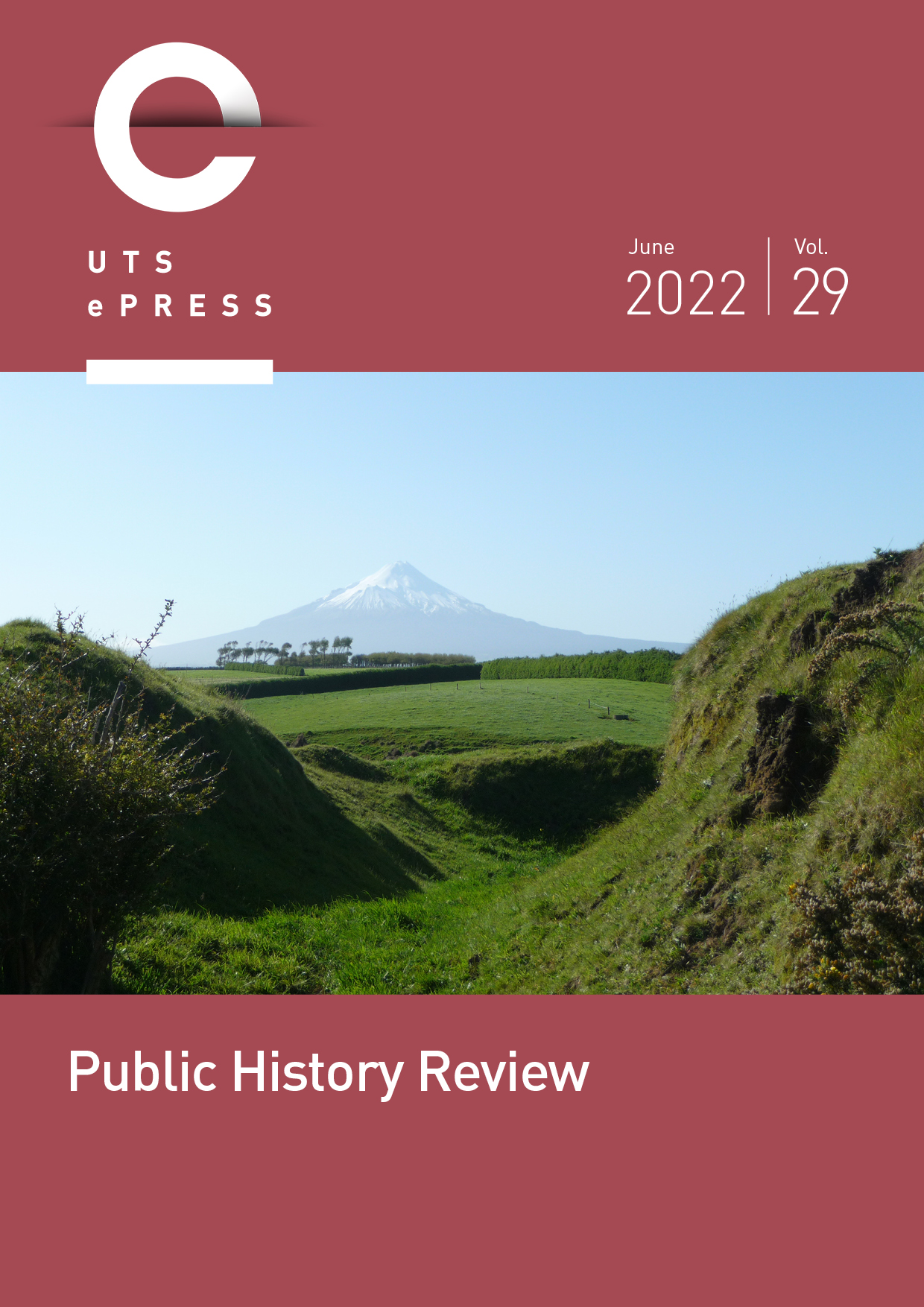‘Egmont, Who Was He?’ The Debate Over Restoration of the Name of Taranaki Maunga
Main Article Content
Abstract
As part of Aotearoa New Zealand’s process of settling historical Treaty of Waitangi claims, a settlement is expected to be completed soon in relation to the maunga (mountain) known to Māori as Taranaki. In addition to recognising the maunga as a legal person, the settlement will reportedly make Taranaki Maunga the landmark’s sole official name. More than 250 years after Captain Cook imposed the name Mount Egmont on the landscape, that name will finally disappear from the map. Few people today are likely to mourn the loss of this name, but things were very different 35 years ago. In 1986, ‘Mount Taranaki or Mount Egmont’ was recognised as the official name of the maunga. The path to that compromise, in which Māori and European names sat side by side, was bitterly contested by many Pākehā (New Zealanders of European descent) who feared the removal of a name they saw as tied to their sense of identity. For Taranaki Māori, who had patiently campaigned for restoration of the Māori name, the decision was another step towards recognition of their deep connections with their sacred maunga. This article provides an account of the debate over the name of the maunga that took place in 1985-86 and looks at how identity, history, race relations and democracy were discussed in the debate. It also reflects on the reasons why there was such intense contestation over the name, and the debate’s relevance to the new Aotearoa New Zealand histories curriculum.
Article Details
Section
Authors who submit articles to this journal from 31st March 2014 for publication, agree to the following terms:
a) Authors retain copyright and grant the journal right of first publication with the work simultaneously licensed under a Creative Commons Attribution License that allows others to share and adapt the work with an acknowledgement of the work's authorship and initial publication in this journal.
b) Authors are able to enter into separate, additional contractual arrangements for the non-exclusive distribution of the journal's published version of the work (e.g., post it to an institutional repository or publish it in a book), with an acknowledgement of its initial publication in this journal.
c) Authors are permitted and encouraged to post their work online (e.g., in institutional repositories or on their website) prior to and during the submission process, as it can lead to productive exchanges, as well as earlier and greater citation of published work (See The Open Access Citation Advantage Service). Where authors include such a work in an institutional repository or on their website (ie. a copy of a work which has been published in a UTS ePRESS journal, or a pre-print or post-print version of that work), we request that they include a statement that acknowledges the UTS ePRESS publication including the name of the journal, the volume number and a web-link to the journal item.
d) Authors should be aware that the Creative Commons Attribution (CC-BY) License permits readers to share (copy and redistribute the work in any medium or format) and adapt (remix, transform, and build upon the work) for any purpose, even commercially, provided they also give appropriate credit to the work, provide a link to the license, and indicate if changes were made. They may do these things in any reasonable manner, but not in any way that suggests you or your publisher endorses their use.
For Vol 20 (2013) and before, the following copyright applied:
Authors submitting articles to UTSePress publications agree to assign a limited license to UTSePress if and when the manuscript is accepted for publication. This license allows UTSePress to publish a manuscript in a given issue. Articles published by UTSePress are protected by copyright which is retained by the authors who assert their moral rights. Authors control translation and reproduction rights to their works published by UTSePress. UTSePress publications are copyright and all rights are reserved worldwide. Downloads of specific portions of them are permitted for personal use only, not for commercial use or resale. Permissions to reprint or use any materials should be directed to UTSePress.
